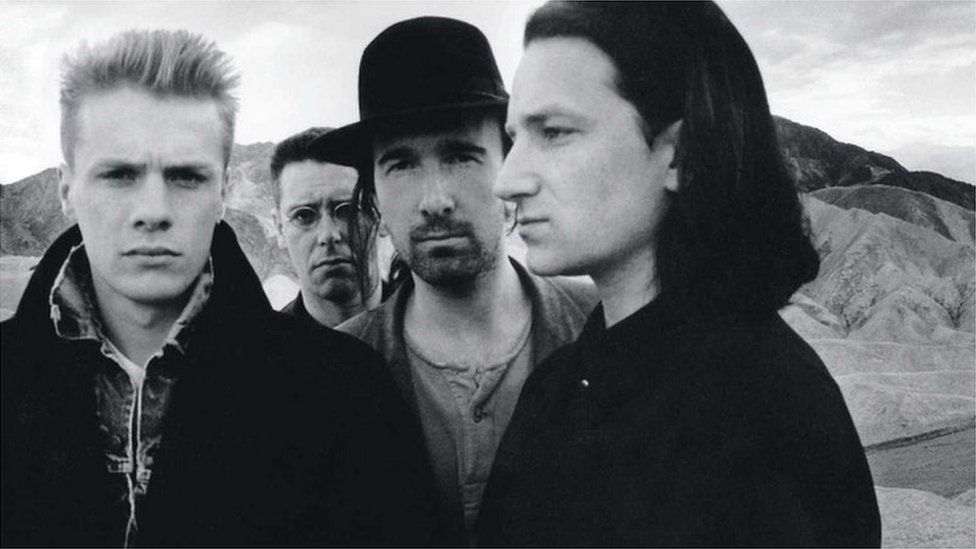
A departure from their previous punk rock sounds, U2′s The Joshua Tree ticked multiple boxes for the newer styles and concepts they adopted as a group, both in terms of music as well as lyrics, for their fifth studio album. The band decided on following the conventional song structures with the hard-hitting sounds instead of their experimentations with ambient music for their now-iconic 1987 release. At the time, U2 referred to this strategy as working with the “primary colours” of rock music – going back to the classic accompaniments of guitar, bass and drums with the vocals. The group was insistent upon bringing about a change in their music pattern, especially something that would contrast the dominant synthpop and new wave music genres of the time.
Bono, U2′s lead vocalist and the primary songwriter for the album, was determined to use America as the central theme for Joshua Tree. While initially, the rest of the group was reluctant on following Bono’s vision for a more American sound, they eventually complied and agreed as the album started to take shape. Bono’s inspiration behind composing this LP came from various avenues. For starters, the band had toured the US extensively for five months in each year for the first part of the 1980s, thereby giving them a first-hand experience of interacting with the social and cultural affairs of the country. Adding to that was Bono’s humanitarian visit to Egypt and Ethiopia, which was really what opened his eyes to how hegemonic a grasp the US had on the rest of the world and how that affected the respective countries. As he said, “Spending time in the pits of Africa and seeing people in the pits of poverty, I still saw a very strong spirit in the people, a richness of spirit I didn’t see when I came home… I saw the spoiled child of the Western World. I started thinking, ‘They may have a physical desert but we’ve got other kinds of deserts.’ And that’s what attracted me to the desert as a symbol of some sort”.







